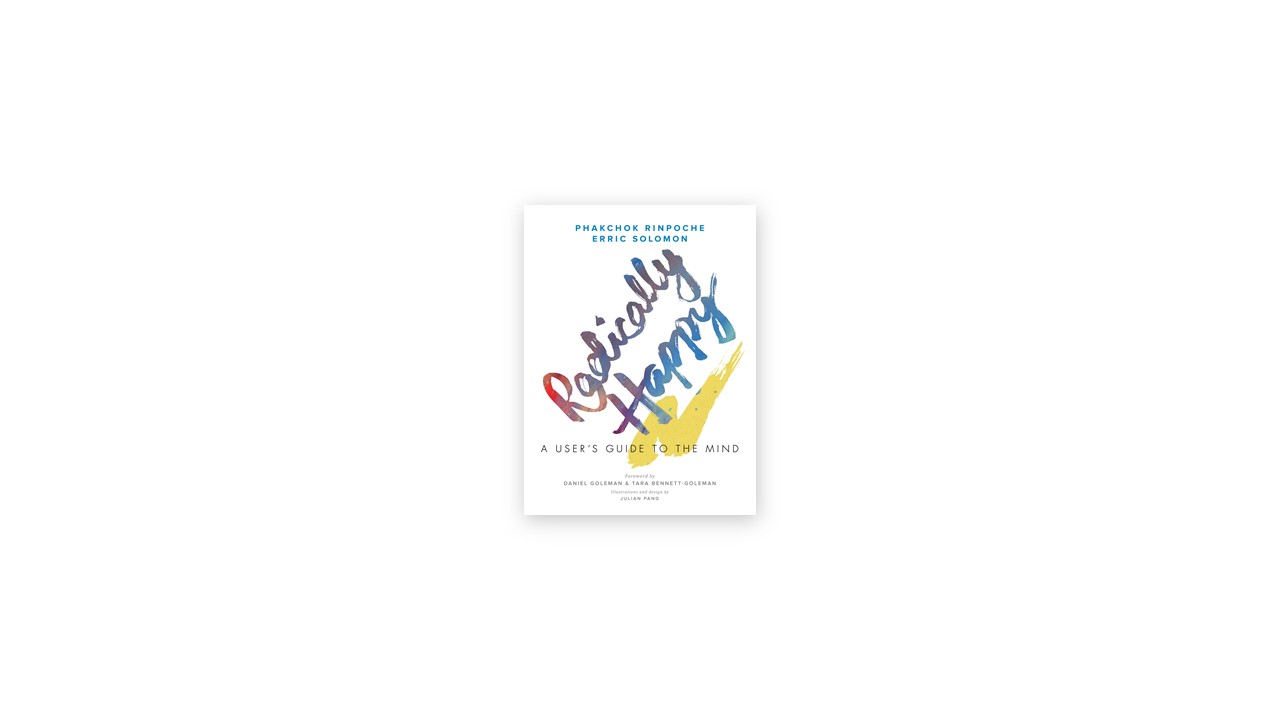3 Keys to Basic Happiness
- Always react to thoughts the same way.
The practice of meditation is an incredibly effective way to become more and more familiar with remaining present. While meditating, we practice reacting to whatever comes to our mind in the exact same way—no matter what sensations, thoughts, or emotions arise, we do not follow after them. Instead of thinking about them, we remain anchored, fully present in the moment.
- Relax the comparing.
The involuntary habit of constantly evaluating experience distracts us and makes it difficult to fully enjoy even life’s simplest pleasures. But it gets worse. These thoughts build upon and reinforce each other. They grow into the world’s biggest stealer of contentment—comparing ourselves to others and their circumstances. We can relax the comparing by learning to accept ourselves, warts and all. We can learn to appreciate what we have.
- Be present.
Through the practice of meditation we turn our attention toward the present moment. But we have to be able to bring the awareness of the present moment from the meditation cushion into ordinary everyday experience. That way, when things are going well, we can drop most of our usual strategies for trying to keep the good times rolling and instead just be present and enjoy. Also when disaster strikes, we won’t completely lose our equanimity and become depressed. The whole point of meditation practice is to become so familiar with the state of non-distraction that we can integrate the be-present experience into whatever we are doing.
3 Keys to Interconnected Happiness
- Contemplate the interdependent nature of reality.
Microorganisms in our gut have an impact on how we experience things. Living as if we are completely separable from the world we find ourselves in distorts every aspect of our experience. If we truly contemplate how we’re all interconnected, it leads to a counterintuitive switcheroo: we usually think that to properly take care of ourselves and our loved ones, we have to put our needs and theirs before all others. But interconnected happiness arises through cultivating loving-kindness and compassion and by learning to value others in much the same way we value ourselves. In fact, responding to others’ needs is also a way for us to nurture our own basic need for happiness and social connection.
- Relax the judging.
We make very strong judgments about people a few seconds after meeting them, yet these judgments are often incorrect and difficult to change. This judgmental habit prevents us from truly seeing others, making good decisions, and authentically experiencing the world around us. Here we learn how to relax this habit of making quick judgments through cultivating loving-kindness and compassion during meditation, as well as learning to celebrate the good fortune of others.
- Be attentive.
Interconnected happiness arises through our daily interactions with other people. And that is what the slogan Be attentive is all about. We can harness the insights and warmth gained in the previous two sections to gradually shift the way we experience others, even really difficult people, and learn to be satisfied and content without waiting for the whole world to conform to what we think we need.
3 Keys to Radical Happiness
- Cultivating dignity.
By bringing basic and interconnected happiness into a unified whole we deepen our confidence in these practices. In order to develop a firm foundation for experiencing radical happiness we need a quiet confidence in basic and interconnected happiness.
That confidence comes from understanding the reasoning behind how the practices function, and experiencing the results of the exercises. Just like when you practice a musical instrument and your playing improves, you gain confidence in your ability to play.
- Relax the clinging.
We use thoughts and emotions to relax and release our subtle habitual tendencies. By looking directly at them, these tendencies dissolve, and we rest in objectless meditation.
- Be aware.
We turn our attention directly toward the stone thrower—the knowing quality of mind—the final key to being radically happy. At the moment of looking into the knowing quality of mind, we are free of all the stones of habitual thinking and can rest our attention in pure awareness.
A Daily Plan for Radical Happiness
MORNING
Wake with awareness. As soon as you wake up, don’t immediately jump out of bed. Instead, as the first moments of conscious awareness begin to take over from the world of dreams, notice how your mind is. Whatever thought, emotion, or sensation comes, as soon as you notice it, look toward the knowing quality.
Morning meditation (20-45 minutes). Start by creating space (5 minutes). Practice Using Thoughts and Emotions as an Object or the Awareness Meditation (5 minutes), then practice Experiencing and Sharing Joy (5 minutes). Alternate between those two methods two or three times. End with two more minutes of Using Thoughts and Emotions or the Awareness Meditation.
AFTERNOON
Aware mini-breaks. Whenever you remember or you encounter your trigger, look toward the knower—or look toward the knowing quality of mind—and let go. After a few moments, make the aspiration for everyone to be happy (in three breaths).
Maintain your sense of awareness as you continue to do whatever it is you are doing. Don’t forget to count your mini-breaks!
EVENING
Evening meditation. Start by creating space and then spend 10 or 15 minutes alternating between awareness and warmheartedness.
Review your day. Take an honest look at your actions: Were they in harmony with the interconnected nature of reality? Did you make decisions and act in a way that was more or less likely to have an authentic experience of yourself and the world? Is there something you can do to reduce the power of unhelpful habits? Is there a habitual response that keeps occurring, getting in the way? Can you begin to anticipate where it might arise? Imagine that tomorrow you catch yourself, and look toward awareness instead.
Reflect and celebrate. Reflect on how, despite a lifetime spent mostly chasing self-absorbed distraction, you spent time being aware. Celebrate the few moments you were aware, kind, patient, and generous or at least didn’t succumb to habitual negative ways of reacting. Then visualize yourself doing it again tomorrow.
Sleep with warmheartedness. Get into bed with an attitude of gratitude that you made some worthy attempts to practice. As you begin to lie in bed, feel the present moment of awareness. Notice the sheets and blankets against your skin. Notice the knowing of the sensation and let go. Now just gently focus on your breath, mostly how it feels in your chest. Feel your heart. Imagine feeling a gentle warmth in your heart. Look at the knower of this and let go into gentle sleep.


